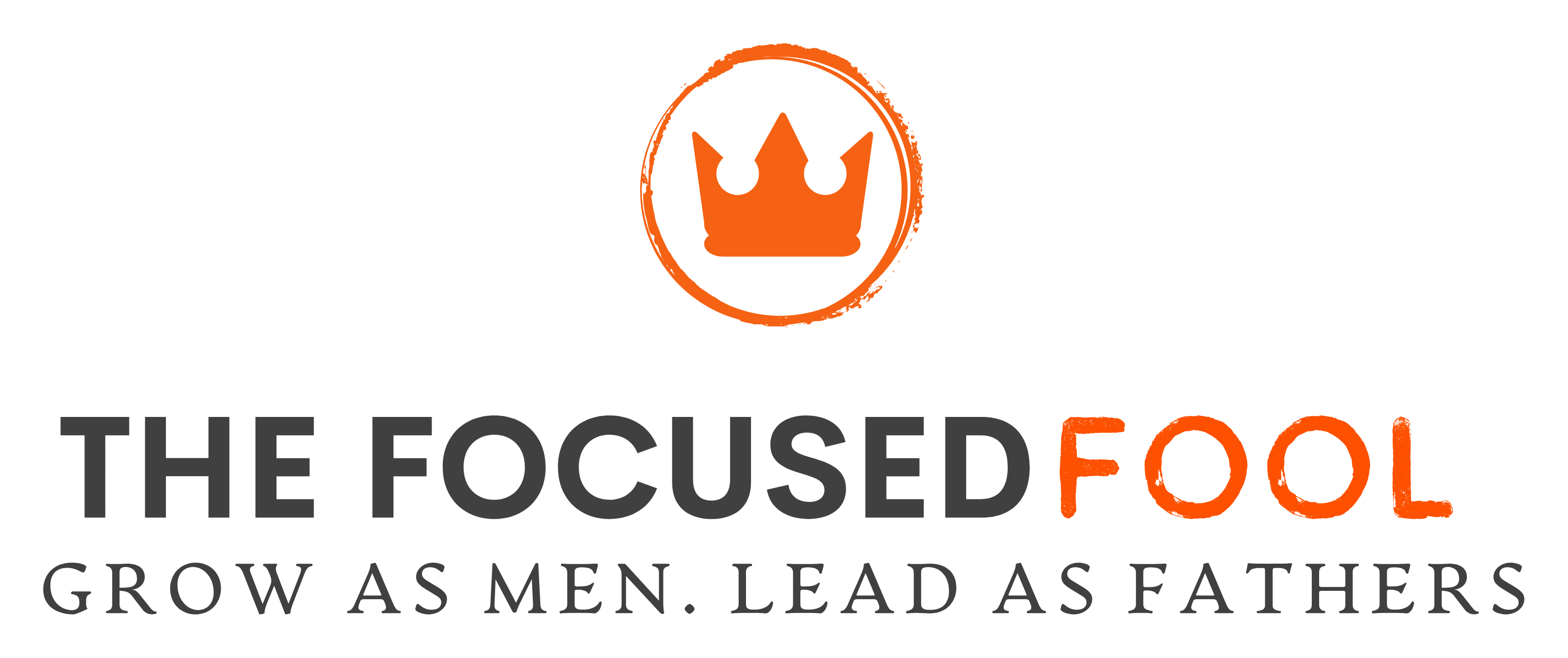Why Your Brain Feels Like a Browser with 37 Tabs Open—and One of Them is Playing Music but You Can’t Find It
I walked into the kitchen last Tuesday morning (or was it Thursday?) with a very specific purpose. By the time I got there—roughly three seconds later—I had absolutely no idea why. I stood there, staring blankly at the refrigerator like it might whisper the answer. It didn’t. Later that same day, I spent fifteen frantic minutes searching for my phone and keys, only to find them neatly placed in the refrigerator next to the milk. That was Tuesday. Or Thursday. I’m not sure. The point is—I was tired.
Not the kind of tired a good night’s sleep fixes. The kind of tired that feels permanent, like it’s moved in, rearranged your mental furniture, and started paying rent.
If you’re nodding along, welcome to the club nobody wants to join: Dad Burnout. It’s real, it’s common, and for some reason, we don’t talk about it nearly enough.
What Is Dad Burnout? (No, You’re Not Just ‘Being Soft’)
Dad burnout isn’t just being tired. It’s a state of chronic stress that leaves you emotionally drained, mentally exhausted, and physically depleted. It’s what happens when the demands of fatherhood collide with work expectations, relationship responsibilities, and the persistent pressure to have your life together.
Modern dads are expected to be providers and protectors while also being emotionally available, academically supportive, and able to navigate conversations about TikTok trends we don’t understand. We’re expected to be emotionally available, financially stable, physically fit, and able to assemble IKEA furniture without swearing. That’s not a man—that’s a Marvel character.
I found myself snapping at my seven-year-old because he asked me the same question three times. Later that night, I realized I never actually answered him the first time. I was physically there, but mentally, I was troubleshooting work problems, planning dinner, and wondering if I’d remembered to schedule that dentist appointment. My body was on the couch, but my brain was running a marathon.
✅ TAKEAWAY: “Dad burnout happens when the roles we juggle demand more than our current systems can sustain.”
The Harvard Truth Bomb
Here’s something that made me feel less alone: 60% of fathers in a Harvard Business School study reported that their work-life balance is unsustainable. When I read that, I thought, “Only 60%?” The other 40% must be lying or independently wealthy.
Modern fatherhood is caught in a perfect storm. We’re part of more dual-income households than ever before, meaning we’re doing more at home while also facing longer work hours and constant digital connectivity. The old model was “bring home the bacon.” The new model is “bring home the bacon, cook it, help with homework while it’s cooking, and be emotionally present throughout.”
Work says be a leader. Home says be present. My back says I’m 40 and my knees agree.
Most nights, I collapse into bed with the same thought: “Did I do enough today?” The answer is usually no. Not enough at work, not enough at home, not enough for myself. It’s exhausting to constantly feel like you’re underperforming in every area of your life.
✅ TAKEAWAY: “The modern dad is stretched thinner than ever, and many are quietly breaking under the pressure.”
Why Dads Don’t Talk About It
Here’s a confession: A few years back, my knee deteriorated to the point where I could barely walk down stairs. Each step sent shooting pain that made me wince. Did I immediately seek medical help? Of course not. I gritted my teeth and endured it for over a year, growing increasingly irritable, snapping at my family over trivial things, all while insisting I was “fine.”
It wasn’t until the pain became completely debilitating that I finally saw a doctor. Five years and one total knee replacement later, I feel infinitely better and wonder why I waited so long. But I know exactly why—the same reason most of us postpone seeking help. We’ve been conditioned to believe that acknowledging pain means we’re not strong enough to carry it.
We’ll power through physical agony, emotional distress, and mental exhaustion rather than admit something’s wrong. Because admitting something’s wrong means we might have to talk about it. And talking about feelings? That’s scarier than any pain.
We talk about lawn care strategies and sports with incredible depth and nuance, but ask us how we’re really doing, and suddenly we all develop selective mutism. The “strong, silent type” isn’t just a character in old Westerns—it’s the impossible standard many of us are still trying to live up to, even as we buckle under its weight.
✅ TAKEAWAY: “We avoid asking for help because we confuse strength with silence—but silence only deepens the damage.”
The Burnout Signs We Pretend Aren’t Burnout
Let’s play a little game of Burnout Bingo. Check all that apply:
- Heard “DAD!” and flinched like it was a grenade ✓
- Researched cabins in Montana at 2AM ✓
- Reheated the same coffee 3 times ✓
- Found yourself sitting in the parked car after arriving home, just… sitting ✓
- Can’t remember the last book you read that didn’t have pictures ✓
- Minor inconveniences feel like personal attacks ✓
- Bedtime routines make you contemplate faking your own death ✓
For me, irritability was the first red flag. Small things—like my kids leaving their shoes in the middle of the hallway for the fourteen thousandth time—would send me into a rage that seemed completely disproportionate. I wasn’t mad about the shoes. I was mad about everything, and the shoes were just the final straw.
Then came the brain fog. Important emails would sit unanswered. I’d forget conversations I’d had just hours earlier. Making simple decisions like what to have for dinner felt overwhelming.
The scariest symptom, though, was the numbness. I’d be at my daughter’s soccer game, watching her play, and feel… nothing. Not pride, not excitement, not even boredom. Just nothing. I was physically present but emotionally unplugged. That’s when I knew something had to change.
✅ TAKEAWAY: “Burnout shows up as irritation, disconnection, and overwhelm long before it feels like crisis.”
What Actually Helps (And It’s Not Just a Bubble Bath)
1. Micro-doses of Self-Care
The phrase “self-care” makes many of us roll our eyes. It conjures images of scented candles and spa days—things that seem neither practical nor appealing to many dads.
But self-care isn’t about bubble baths. It’s about finding small pockets of time to recharge your batteries. For me, it’s the ten minutes I spend in my car before walking into the house after work. No radio, no phone calls, just silence. I use that time to decompress, to transition from “work me” to “dad me.”
Sometimes self-care is locking the bathroom door and pretending to poop just for 7 uninterrupted minutes.
I’ve also found that physical movement—even just a 15-minute walk around the block—clears my head better than an hour of scrolling on my phone. It’s not about getting ripped (though that would be a nice bonus); it’s about reminding yourself that you exist separate from your responsibilities.
✅ TAKEAWAY: “Even five minutes of intentional space can make the difference between showing up and shutting down.”
2. Honest Conversations
This is the hardest one for me. Talking about burnout feels uncomfortably close to complaining, and complaining feels uncomfortably close to failing.
But I’ve been practicing having more honest conversations, starting with my wife. Instead of the reflexive “I’m fine” when she asks how I am, I’ve been trying to say, “Today was really tough” or “I’m feeling overwhelmed right now.”
The world hasn’t ended. My man card hasn’t been revoked. And most surprisingly, these conversations haven’t burdened my wife—they’ve actually brought us closer. Turns out, she already knew I wasn’t fine, and my insistence otherwise was more frustrating than my actual struggles.
I’ve also had age-appropriate conversations with my kids about dad being tired sometimes. They’re remarkably understanding when you give them the chance to be.
✅ TAKEAWAY: “Speaking the truth about how you’re doing invites connection—not criticism.”
3. Get Support
If your check engine light comes on, you take your car to a mechanic. If your mind is giving you warning signals, why not give it the same respect?
I haven’t gone the therapy route myself, but I do have one friend I can call when times get tough. That one authentic connection has been my lifeline. We skip the small talk and go straight to, “Hey man, I’m struggling with this…” Having just one person who really gets it can make all the difference.
If you’re ready to go further, here are a few solid starting points:
- Therapy apps like BetterHelp or Talkspace
- Men’s groups like The Dad Edge Alliance or local church/meetup communities
- Podcasts or books like The Art of Manliness, The Dad Edge, or Father Figure
Beyond professional help, finding a community of other dads has been invaluable. Whether it’s a formal group or a regular meet-up with friends where real talk is encouraged, having spaces to be honest about the struggles of fatherhood helps remind you:
You’re not alone. You’re not failing. You’re just human.
Think of these honest conversations and support systems like an oil change for your brain. Ignore them long enough and you’ll definitely break down on the highway of parenting.
✅ TAKEAWAY: “Support isn’t a luxury—it’s a system. Build one before you’re forced to need one.”
Final Thoughts: You’re Not Broken—You’re a Tired, Caring Human
Dad burnout doesn’t mean you’re weak or that you’re failing at fatherhood. It means you care so deeply about doing this right that you’ve been running full-speed without refueling.
The goal isn’t to become some superhuman dad who never feels tired or overwhelmed. The goal is to recognize when you’re heading toward burnout and to have tools to pull yourself back from the edge.
I’m still working on this every day. Some days are better than others. Some days I still find myself staring blankly into the refrigerator, wondering why I opened it. But slowly, I’m learning that taking care of myself isn’t selfish—it’s actually the most responsible thing I can do for my family.
If this hit home, hit reply. Or just go take that bathroom break—no judgment. Your family doesn’t need a perfect dad. They just need you, present and well enough to be there for the long haul.
✅ TAKEAWAY: “You’re not failing—you’re learning to carry a heavy load with more grace and fewer bruises.”
The Focused Fool Newsletter – Growing as Men. Leading as Fathers.


Leave a Reply